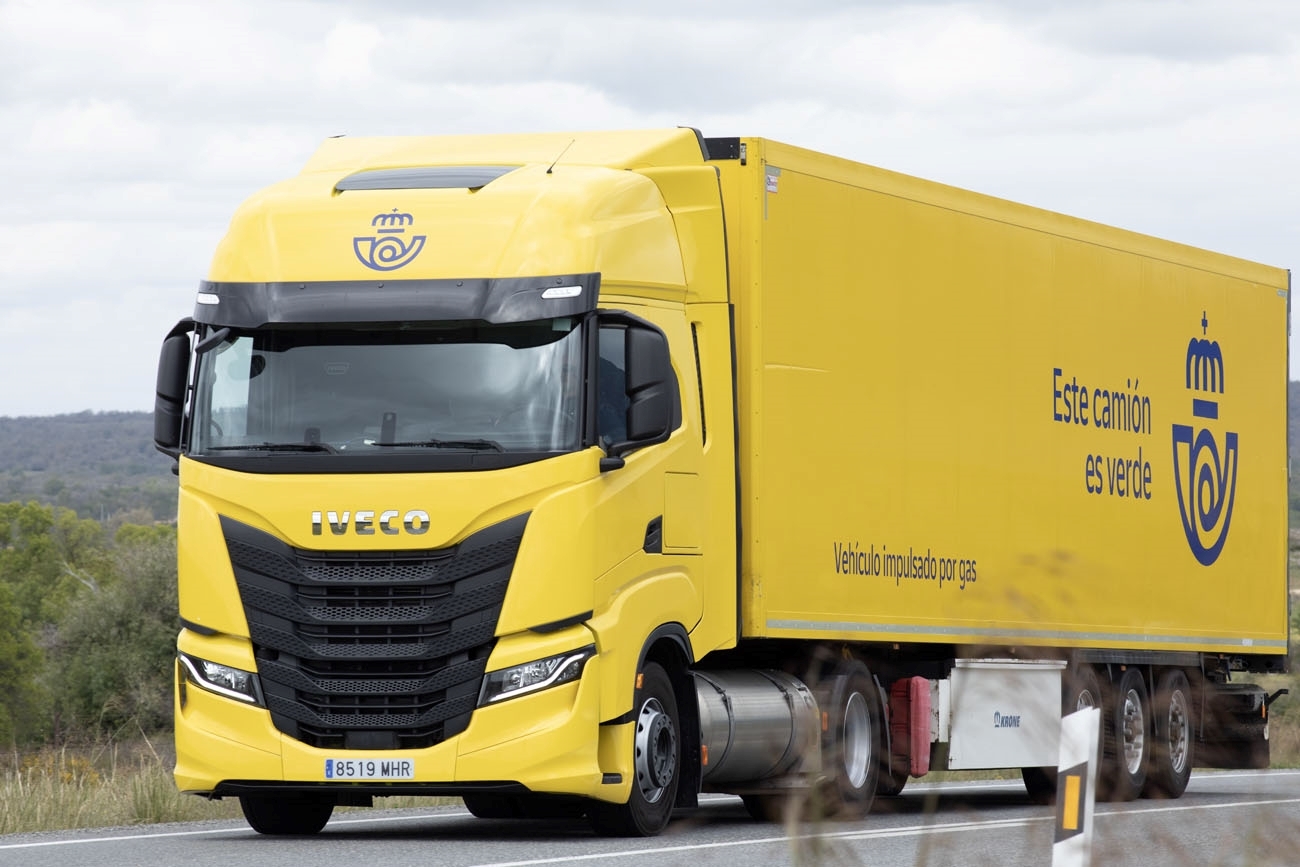Correos joins the celebration of "Green Postal Day" together with 23 postal operators from all over the world
• Correos is one of the 24 postal operators from around the world that are participating today in the 6th edition of the #GreenPostalDay, which this year celebrates the progress achieved in Sustainability thanks to the joint work of the International postal sector over the last 15 years • Since the start of their cooperation in 2008, postal services have reduced their total annual CO2 emissions by almost 40% and have committed to achieving a further 50% reduction by 2030, compared to their 2019 carbon emissions • Correos will continue to work to collectively advance in the achievement of the joint objectives of the global postal sector, in some of which the Spanish public company is well underway, such as the incorporation of an electric fleet and the use of renewable energy
Madrid, 19th September 2024.– Correos is one of the 24 postal operators from around the world that are participating today in the sixth edition of the #GreenPostalDay, which this year celebrates in particular the successes achieved in sustainability thanks to the global cooperation of the sector for more than 15 years.
International Post Corporation (IPC), the organisation that brings together the main companies in the international postal sector, promotes the celebration of this day whose objective is to remind society about the progress made in reducing the carbon footprint associated with postal activity, thanks to the sustainability commitments assumed by postal services around the world.
As key players in the transport and logistics sector, postal operators began working together in 2008 by launching the Environmental Measurement and Monitoring System (EMMS) and then, in 2019, the Sustainability Measurement and Management System (SMMS), in which 26 operators are currently involved. Since the start of their cooperation in 2008, postal services have reduced their total annual CO2 emissions by almost 40% (2023 data) and have committed to achieving a further 50% reduction by 2030, compared to their 2019 carbon emissions.
As transport remains one of the main sources of CO2 emissions in the postal sector, the key priority for operators has always been to progressively replace their polluting fleet with alternative-fuel, mainly electric, vehicles. Postal operators have committed to the joint goal of having at least 50% of their fleet made up of alternative fuel vehicles by 2030. The sector is well positioned to achieve this goal given that, today, its fleet already has 28% of alternative fuel vehicles (2023 data).
In line with the UN’s Sustainable Development Goal 17 (SDG 17) “Partnerships for the Goals”, postal services around the world are an example of the importance of global partnership to achieve sustainable development. Cooperation between postal operators in Europe, the Americas, Oceania, Africa and Southeast Asia has enabled them to benefit from each other’s experiences and best practices and make further progress towards their sustainability goals.
Since sustainability concerns the entire value chain, postal operators are calling for cooperation and partnership with all actors, and are already participating in different joint actions together with their stakeholders:
- Through sustainable procurement programs, postal operators ensure that their suppliers adhere to sustainability principles.
- Collaboration between postal operators also focuses on developing innovative solutions to reduce emissions and waste and finding innovative sustainable delivery options.
- Postal operators have already achieved a recycling rate of 69% of their waste. In many countries, postal services contribute to a circular economy by collecting items from other industries to be recycled (bags, masks, faulty telecommunications equipment, etc.).
In conclusion, while individual companies play a crucial role in sustainability, a global approach, such as that developed by the international postal sector, can amplify efforts, drive systemic change, and foster a more cohesive and effective response to global sustainability challenges.
International postal Industry targets for 2030
- Reduction of Scope 1 y 2 emissions by 50% compared to 2019.
- 75% use of energy in our own buildings from renewable sources.
- Vehicle fleet consisting of at least 50% alternative fuel vehicles, with at least 25% of the total fleet consisting of electric vehicles.
- 50% sustainable packaging.
- 75% of waste diverted from landfills to recycling or reuse.
Long-term trends
- Circular economy:
- The postal sector has an important role to play in the transition to a circular economy, not only reducing its own impacts but also providing the logistics needed to achieve more sustainable consumption patterns globally.
- Route optimisation and the use of reverse logistics will be key components of a circular economy, for example to reduce fuel consumption or provide elements for the return of packaging or packaging at post offices.
- The postal sector can also draw on its expertise and network to cooperate with governments and other sectors of activity.
Decarbonized long-distance transport:
- Decarbonizing long-distance transport will become increasingly crucial to reducing the environmental impact of the sector.
- The proven and improved technology for the last mile is being gradually reconfigured to meet the different needs of long-haul transport operations as well. Likewise, the technology to facilitate high-power electrical loads is still being developed and standardized. Several postal operators are already using electric trucks for long-distance transport.
- Postal services are also looking for more innovation in alternative fuel options for air transport
Correos’ active commitment
Correos continues to work to collectively advance in achieving the joint objectives of the global postal sector, in some of which the Spanish public company is well advanced. For example, Correos already has 2,685 ecological vehicles, which makes it the largest ecological delivery fleet in the distribution sector in Spain. In addition, it has set an even more ambitious deadline target: to make 50% of its fleet sustainable by 2028.
Correos has also introduced the sustainability criterion in tenders for the outsourcing of medium and long-distance routes, prioritising offers that provide the use of trailers, trucks and vans with the ECO label.
In addition, it has already achieved that 100% of the energy purchased for its buildings is from renewable sources. And it has also launched a Circular Economy Action Plan to advance its goal of being “zero waste” by 2030. In 2023, 93% of waste was recycled or reused.
In addition, Correos has the “LĂnea Bosques”, a range of sustainable packaging that has been redesigned to minimise the use of inks, as well as being made from recyclable, biodegradable materials with a certificate of sustainable management. Through the “Correos compensa” programme, in 2023 the company has managed to offset the emission of 6,806 tonnes of CO2 derived from its activity.
Correos welcomes the progress made and joins the 24 postal operators in the world that this year actively participate in the celebration of “Green Postal Day” and which are: An Post (Ireland), Australia Post (Australia), bpost (Belgium), Correos (Spain), Croatia Post (Croatia), CTT Portugal (Portugal), DHL Group (Germany), Iceland Post (Iceland), La Poste Groupe (France), Malta Post (Malta), New Zealand Post (New Zealand), Omniva (Estonia), Ă–sterreichische Post (Austria), POST Luxembourg (Luxembourg), Poste Italiane (Italy), Posti (Finland), PostNL (Netherlands), Posten Bring (Norway), PostNord (Sweden), Pos Malaysia (Malaysia), Royal Mail (UK), Swiss Post (Switzerland), Thailand Post (Thailand) and USPS (United States).




